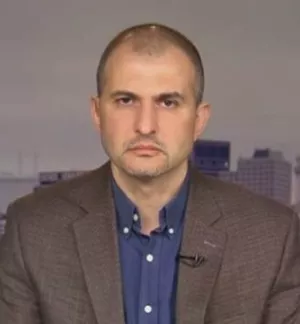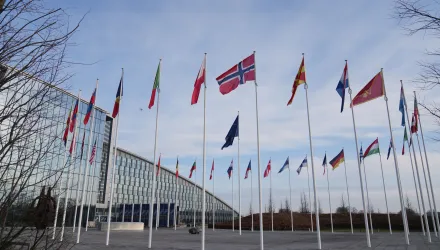There have emerged multiple signs this summer that Russia’s Vladimir Putin may be reconsidering expediency of continued support for Syria’s Bashir Al-Assad. If these signs do reflect a shift in the Russian leader’s position on Syria, then it would enhance chances of finding a compromise solution on transition of power in Damascus in what would strengthen multilateral efforts to stabilize this country and rout the Islamic State.
Several signs that Putin may have had a change of heart on Assad have emerged this summer. First, Russia was reported to have pulled as many 100 of these advisors from Syria. Then Saudi Arabian defence minister Mohammed bin Salman visited Moscow in June to sign agreements on cooperation on oil, space and peaceful nuclear energy and on co-investment of $10 billion into Russian economy. Russia’s decision to clinch these deals was all the more significant, given that the Russians rejected a previous offer that the Saudis made behind the closed doors to trade support for Assad for lucrative deals among other things. Then July saw representatives of the Syrian National Coalition claim to have discussed Assad’s political fate with Russian officials for the first time. Most recently, Turkish President Recep Tayyip Erdogan announced in early August that his recent meeting with Putin has left him with an impression that the Russian leader soon “give up on” Assad. Finally, U.S. President Barack Obama stated this past weekend that “what I have been encouraged by is that the Russians are now more interested in discussions around what a political transition - or at least framework for talks - would look like inside of Syria.”
The main reason why Putin may be reassessing wisdom of continuing support for the Assad regime is that the latter has been losing control of territory at such a pace that the Syrian government now controls only one-sixth of the country. There is, therefore, an increasing real possibility that Assad might lose the war and flee to Iran while the future of his country will be decided without Russia’s participation.
One potential way to stop the bloody Syrian civil war now in a way -- that would accommodate Russia’s interests -- would be for Russia and other countries to mediate negotiations between on formation of a coalition government, which would include representatives of moderate factions within the anti-Assad forces and the Alawites (at least guarantee the latter’s security and accommodate their reasonable interests), while excluding the Islamic State of Iraq and the Levant (ISIL) and al-Qaeda. A lot, of course, will depend on the position of Iran, which remains the principal backer of the Assad regime. Should both Teheran Moscow concede, however, to a transition of power in Syria and convince Assad to do so too, then that would increase chances that Syria would avoid a formal partition and that the next rulers of this country will be open to accommodating Iranian and Russian interests in Levant.
If there is one important security interest vis-à-vis Syria that not only Russia and Iran, but also Western countries share, then it is defeating ISIL in Syria, Iraq and elsewhere. ISIL’s Sunni militants view Shia Iran as bastion of heresy and Teheran has dispatched fighters to combat ISIL in Iraq. Russia’s Foreign Minister Sergei Lavrov and Security Council secretary Nikolai Patrushev describe this organization as Russia’s main enemy and main threat to global security respectively. That should come as no surprise, given that ISIL has recently announced creation of a “vilayat” in the North Caucasus and attracted thousands of Russian citizens to its ranks. Washington is also very concerned about ISIL’s rise. FBI’s director James Comey has recently been quoted as saying that ISIL poses the greatest danger to U.S. homeland, though there is no consensus in the U.S. leadership on whether and what terrorist organization represents the top threat to U.S. national security
That Moscow and Washington are interested in cooperation against ISIL, in spite of their stand-off over Ukraine, is clear from recent visits of Russian and U.S. security officials to U.S. and Russia respectively. First President Putin sent director of the Federal Security Service Alexander Bortnikov to participate in a conference on Islamic extremism organized by the Barack Obama administration in Washington, DC, in February. Then the U.S. government sent a delegation of officials from CIA, FBI and National Counterterrorism Center to a gathering of representatives from security services of 64 countries that FSB hosted in Yaroslavl in July. A number of America’s NATO allies, including Germany, France, Italy, Poland, Spain, and Netherlands also sent their delegations to Yaroslavl, as did Israel, Iran and Saudi Arabia, to discuss cooperation against ISIL among other issues.
Many common Russians would support Russia’s participation in international efforts to rout ISIL. The share of Russians who think Russia should fight ISIL is more than twice as large (36%) as the share of those who hold the opposite view (15%). Moreover, two-thirds of those who believe Russia should fight ISIL also think their countries should do so in cooperation with Western countries, according to a recent poll by Russia’s Public Opinion Foundation.
The governments of Russia, the United States and their allies should utilize the positive momentum, which their cooperation in securing an agreement between P5+1 and Iran has created, to help negotiate a compromise solution for transition of power in Syria. That could pave way for coordination of efforts by U.S., E.U. Russia, and even, maybe, Iran in supporting efforts of those state and non-state actors who are fighting ISIL not only in Syria, but also in Iraq.
An active U.S.-Russian cooperation on transition of power in Syria, then in combatting against ISIL will not only greatly advance international efforts to defeat this terrorist organization, but would also help to stop the slide towards a new Cold War between West and Russia in the wake of the Ukraine crisis.
Saradzhyan, Simon. “Putin’s Change of Heart on Assad Could Pave Way for Cooperation against ISIL.” Belfer Center for Science and International Affairs, August 10, 2015




